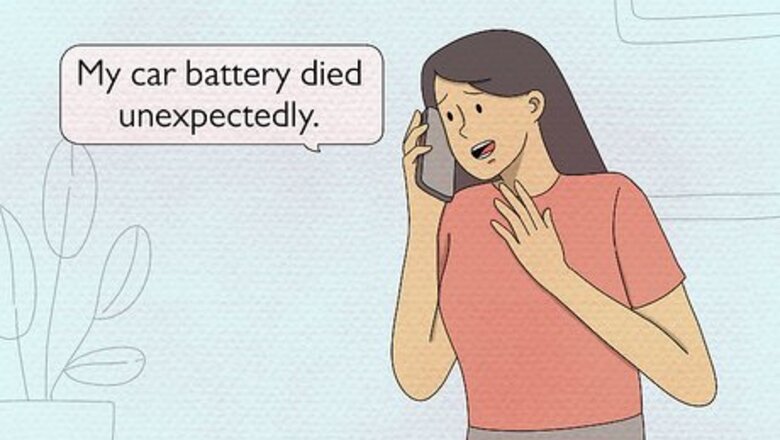
views
Making An Excuse
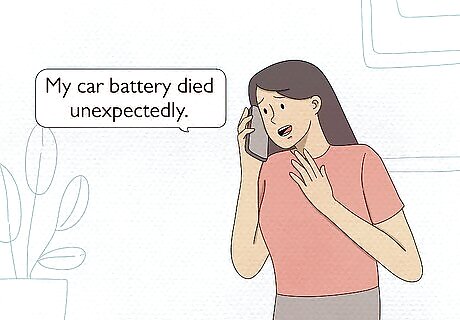
Come up with a legitimate excuse. Pick an excuse that could plausibly occur. If your story is too bizarre or outlandish (a raccoon breaking into your apartment, for example), the host may pick up on the fact that you’re trying to get out of the event. Excuses can include previous events, a sick relative, no access to transportation, or a family emergency, if your excuse is needed on short notice. Choose an excuse you can easily remember. There is nothing quite as humiliating (and heartbreaking for the host) as forgetting your own made-up problem. Here are some examples of solid, believable excuses: “Thank you so much for the invitation, but I actually have a work obligation on that day, so I can’t make it. I hope you have a wonderful time!” “I’m so sorry, but I actually can’t make it today. I had to take my dog to the emergency veterinarian. She’s okay, but I need to stay home to take care of her.” “I was looking forward to the event tonight, but my car battery died unexpectedly, so I won’t be able to make it. I hope you all have a great time.”

Practice your story. If you turn down an invitation to a significant event, you may have to field a lot of questions and needling. Practice your story, so that you can remain consistent and solid when questioned about it. You may even want to write down details of your given story to refer back to later. Take a moment to think about answers to any questions that are posed, but don’t script them out word for word. You want to sound sure of yourself, but not too forced or rehearsed. Keep your body language relaxed as you talk about your excuse. Don’t fidget, squirm, or avoid eye contact—all of these things can tip off the other person to the fact that you’re telling a white lie.
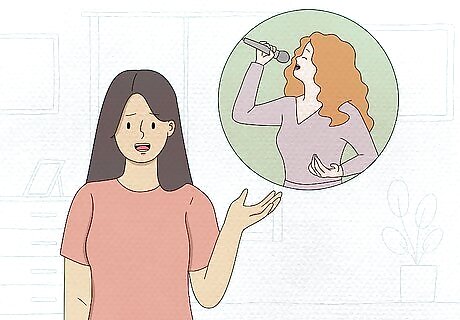
Involve someone else. If possible, involve someone else who can corroborate your story. You could say, for instance, that you’d already promised a friend you’d take him to a sports game, and have him back you up. This is particularly important if you are turning down an invitation extended by a close friend or family member. They may be more sensitive about your inability to attend, so the extra legitimacy will go a long way. For example, if you’re trying to get out of a social gathering your family member planned, you could say that you already committed to driving your best friend to the airport on that day. Be sure to inform your friend of the situation. That way, if your family member mentions something about it to them later, they'll be able to corroborate the story.
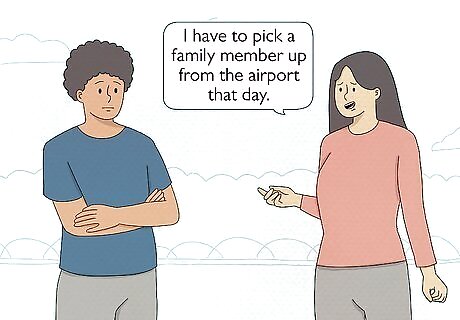
Give plenty of warning. Sometimes a last-minute excuse is unavoidable, but if possible, try to give the host plenty of warning that you won’t be attending. This courtesy gives them the chance to invite someone else in your place, or to amend the amount of food or supplies they’re purchasing to save money. A scheduling conflict that you knew about weeks in advance may also be more legitimate-sounding and believable than a last minute illness or flat tire. Examples of excuses that could be given days or weeks in advance include: “Thank you so much for inviting me to the housewarming party! That night is actually my brother’s birthday, though, so I won’t be able to make it.” “I hope you have an awesome time at this dinner party! I unfortunately won’t be able to attend because I have a work event that I can’t get out of.” “I just received your invitation, and I’m sorry to say I can’t make it. My close friend is visiting from out of town for that whole weekend. I hope you all have a great time, though!”
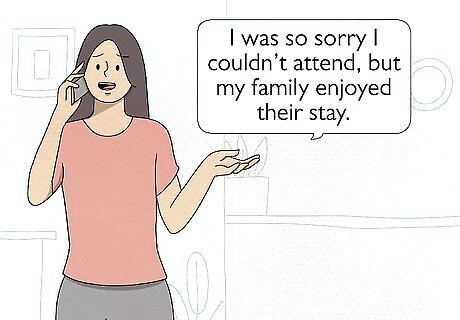
Follow through with your excuse. After the fact, someone might ask about how things went with your given excuse. Follow through on your story and provide additional details if requested. Staying consistent in this way will keep suspicions off of you. Remember, you don’t need to give too many details—an elaborate story can backfire and seem less believable. Just keep things vague but believable: “We were worried about Bella, but she’s doing well after her visit to the veterinarian. Thanks for asking!” “I was able to get my car running the next day, so all is well now. I was so bummed to miss the event, though! How did it go?” “My sister and I had a great visit, thank you! How was your event?”
Feigning An Illness

Claim a safe but real illness. You should never claim a serious or debilitating illness you do not actually have, as these claims are easily debunked. This is especially true if the event in question is a work function, as your supervisor could request a doctor’s note to corroborate your story. Real but safe illnesses include the flu, a cold, food poisoning, or a case of severe menstrual cramps.
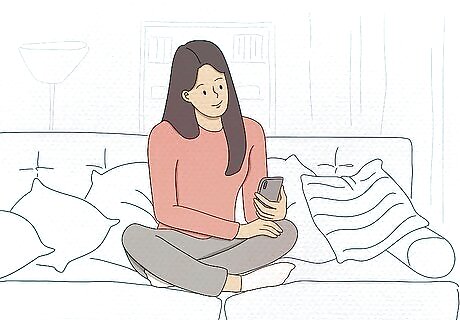
Stay home on the date of the event you’re hoping to avoid. Do not—under any circumstances—go somewhere you could be seen by someone you know. If someone sees you out and about on the day of the event, this might look suspicious, and it could get back to the host. If you can't stay home, prepare yourself for the possibility of running into someone, and have an excuse at the ready. For example, if someone runs into you at the grocery store, you could say, “I really don’t feel well, but I ran out of Advil so I had to come grab some.”
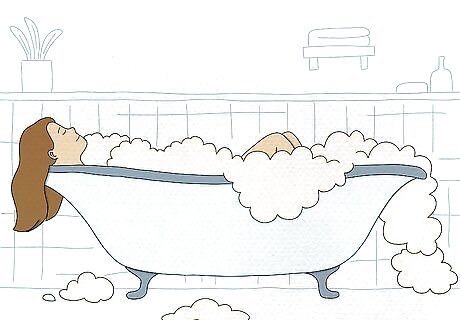
Schedule some self-care. During the time of the event, give yourself some at-home pampering. This way, if someone asks how your evening went, you can honestly say, “I took it easy, had a bath, and stayed in bed for most of the night,” or something along those lines.
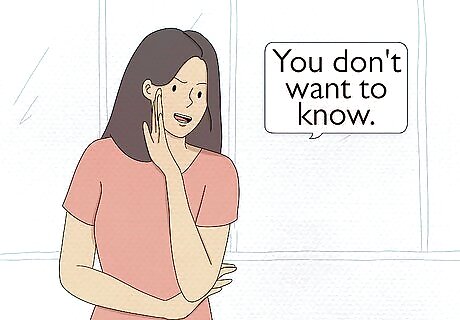
Use vague language after the event has passed. Don’t go into specifics about your illness. You can simply say you were under the weather. Most people do not want to hear the details of others’ sickness, anyway, so don’t feel as if you have to volunteer detailed information. For example, if someone asks how the night went with your stomach bug, you can grimace and say, “You don’t want to know,” or something along those lines.
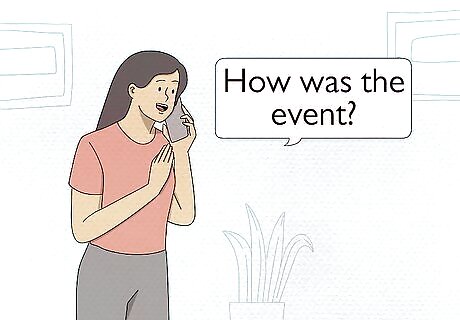
Follow up with the host. If necessary, contact the host and once again express your regret at having fallen ill. Ask how the event went, and let them know that you were thinking of them. Doing so lends more credibility to your illness, as it creates the illusion that you are genuinely disappointed at having missed the party.
Double Scheduling Yourself on the Day of the Event
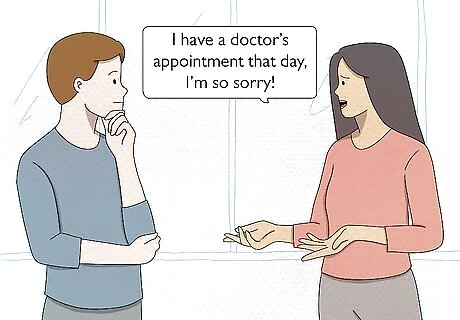
Quickly identify something you can schedule during the party or event. Then, ruefully claim you already have plans, so you won’t be able to make it. This is a great option if you really want to get out of a commitment, but you’re not comfortable with completely lying. For example, you could say that you already scheduled a doctor’s appointment, a family night, or a dinner with a friend on the night of the event in question.

Schedule your excuse at the same time as the event. This is key to successfully pulling off this ruse. It will also make it extremely easy to keep up the pretense of your story. Just make sure to give the impression that your plans were scheduled before you were invited to the event, not after.
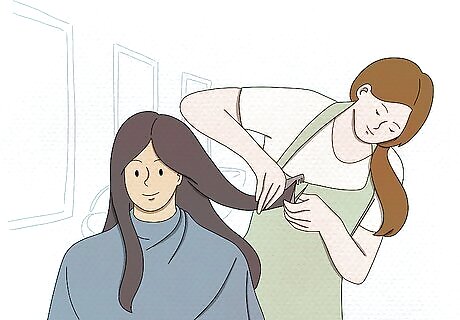
Go to the appointment, date, or social outing you’ve scheduled. For example, if you told the host you can’t make it to brunch because you have a doctor’s appointment, take this opportunity to actually go to the doctor. This is a great way to complete a task you’ve pushed aside or avoided. And, if someone asks how your appointment went later, you won’t have to fumble for an explanation: you’ll be able to honestly describe how it went. To really solidify the legitimacy of your excuse, take a photo or video and post it to social media. For example, if you said that you couldn’t make it to the event because you were having a family night at home, snap a photo of yourself playing games or having dinner with your family and post it on Instagram.
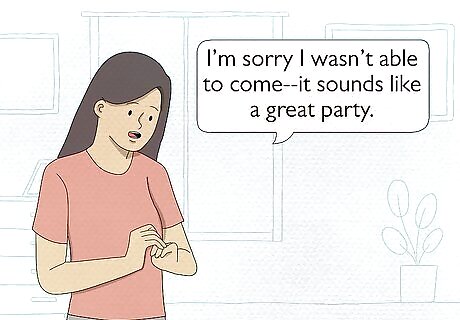
After the event, ask how it went and express regret at having missed it. Once the event has passed, ask the host if they enjoyed themselves. Be gracious in hearing about what transpired, and once again express your regret that you had something else scheduled. Finish your conversation with something like, “I’m sorry I wasn’t able to come—it sounds like a great party.”
Being Honest About Why You Don’t Want to Go

State your concerns about going to the event. If you don’t feel comfortable coming up with an excuse, try to open up to the host about your feelings. According to licensed clinical psychologist Dr. Kateri Berasi, this directness and honesty may be the best option. “If it’s not something you want to do for whatever reason, you can always decline an invite by saying it’s not for you,” she says. Here are some examples: “I wanted to let you know that I can’t make it to the dinner party tonight. I’m going through a tough time with my mental health, and I just don’t feel up to it. I really hope you guys have a great time, though!” “Thank you so much for the invite, but I don’t think I’m up to it. My partner and I recently broke up, and I’ve been having a hard time. I think I’m going to stay in and relax tonight.” “I really appreciate your invite to the weekend getaway you’re planning! I wish I could go, but I’ve been trying to save money for a new car, so I just don’t think it’s in my budget this month. I hope you all have an amazing trip!”

Suggest an alternative activity you can do with the host at a later date. If you still want to nurture your relationship with the host, suggest that the two of you do something else another time. “Ask them if they would like to do a different activity in the future that may be more in alliance with something you enjoy,” suggests Dr. Berasi. “This way you are honoring your needs and also letting them know you value them.” “Thank you for inviting me to go bar hopping tonight, but I can't make it. I’ve been cutting back on alcohol lately, and bars haven’t really been my scene. I would still love to catch up, though! Can we grab lunch or coffee next week?”

Be kind, but firm in your decision. At the close of the conversation, the person inviting you may make a last-ditch attempt to get you to come. (For example, if you said you couldn’t make it due to your mental health, the other person may say, “Why don’t you just come for an hour or two? That probably won't be too stressful!”) Many people end up caving at this stage, but this just leads to stress and resentment down the road. Be kind but firm in your “no.” If the host is a true friend, they’ll understand that you need to do what’s best for you!


















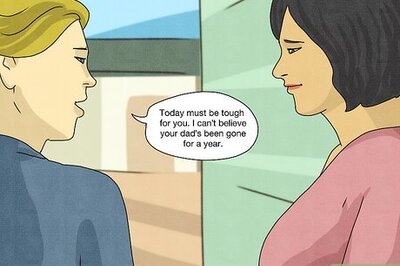

Comments
0 comment